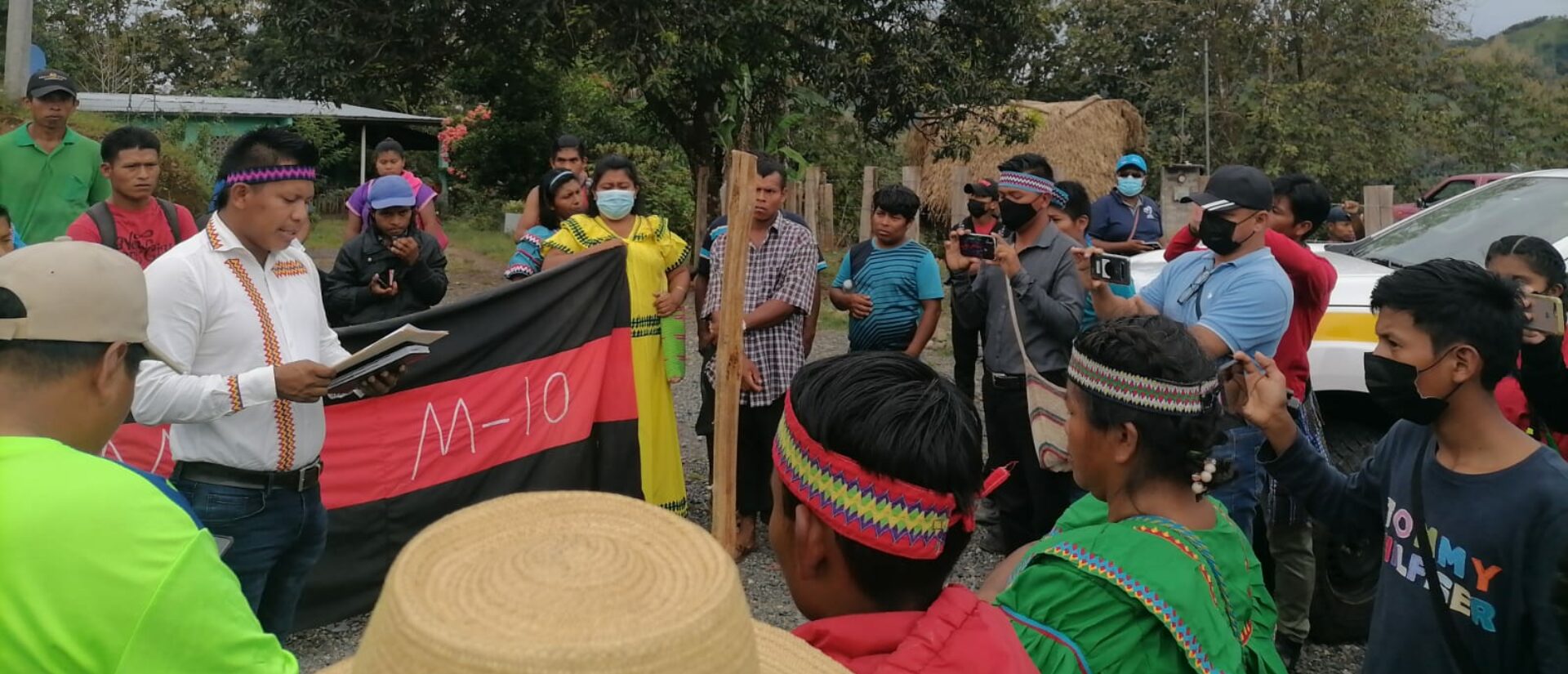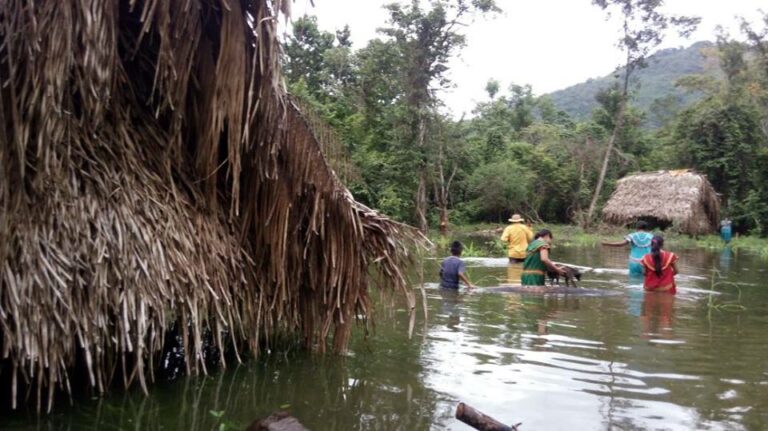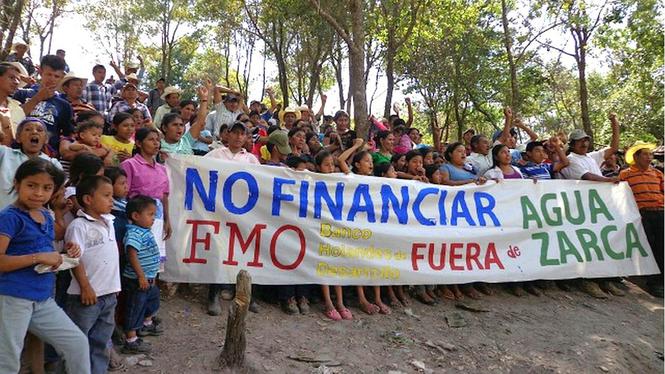
SOMO and Both ENDS condemn violence against Indigenous community near the Barro Blanco dam in Panama
Members of the Indigenous Ngäbe Buglé people were brutally attacked by Panamanian police on Friday 29 October 2021 on a parcel of private land near the FMO-financed Barro Blanco hydroelectric dam. The victims, all members of the anti-dam movement M22, had peacefully occupied the land after their protest camp got dismantled in July this year(opens in new window) .
According to Movimiento 10 de Abril (M10), a key partner of SOMO and Both ENDS, the police failed to follow appropriate protocols to execute the eviction order. Without warning they immediately used rubber bullets, tear gas bombs and other weapons against the group, including (pregnant) women, children and elderly. M10 reports that the brutal intervention by the police left more than a dozen people severely injured, including children. One child lost its sight because of a rubber bullet. All the belongings of the people present were burned. La Defensoria del Pueblo(opens in new window) , the Panamanian Ombudsman on human rights issues, has opened an official investigation on the excessive use of force.
SOMO and Both ENDS strongly condemn this latest act of violent repression of the Ngäbe-Buglé Indigenous people who protest against the Barro Blanco project, and express their sincere solidarity with those injured.
Background
In 2011, the Dutch development bank FMO and its German peer institution DEG provided USD $50 million project financing for the construction of the Barro Blanco hydropower dam on the Tabasará River in Panama. The project has been very controversial from the outset, because it affected the land, livelihood and culture of the Ngäbe-Bugle Indigenous people. Local communities never provided their Free, Prior and Informed Consent (FPIC), a requirement laid down in the UN Declaration on the Rights of Indigenous Peoples (UNDRIP). Being ignored, they engaged in peaceful protests led by M10, a local movement that stands up for the rights of the directly affected communities. Security forces have responded by repressing M10 in the past; in 2012, two people were killed and dozens were injured during an action by the police.
SOMO and Both ENDS engaged with FMO at the time, pointing out the severe human rights violations around the Barro Blanco dam, but the banks nevertheless decided to continue financing the project. In 2014, M10, with the help of Both ENDS and SOMO, filed a complaint with the joint mechanism of FMO and DEG, which was declared admissible in June of that year. In 2015, the complaint mechanism concluded that there were several instances of non-compliance with the banks’ social and environmental standards. However, the banks still did not withdraw their funding, and the project construction went ahead without addressing community concerns. In 2016, the dam’s reservoir was filled, and the unheard warnings related to the expected high risks turned into severe adverse impacts that communities still suffer nowadays, including the loss of fertile land and other livelihood necessities, and the loss of an important sacred site.
In April 2021, FMO and DEG announced their exit from the Barro Blanco project due to an early debt repayment. In September, the banks’ complaint mechanism undertook its last monitoring visit to the directly affected communities represented by M10. SOMO and Both ENDS continue to support M10 in its dialogue with the banks, calling for a responsible exit from the project.
Do you need more information?
-

Luis Scungio
Corporate Researcher
Related content
-

-
Letter to FMO on concerns over investments in Honduran bankPosted in category:Published on:Statement
-



